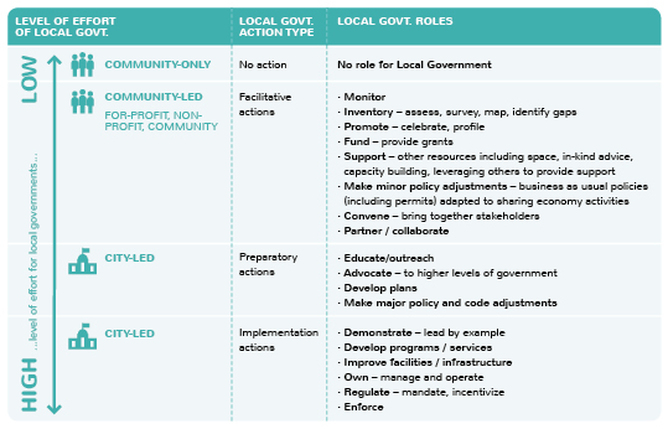Key Messages
Sustainability Filter
Six guiding questions address the ecological, social and economic dimensions of sustainability. These are described in more detail in Chapter 2 of the report - and include key sub-questions.
You can learn more about the filter here. Recommendations
The sustainability filter is applied to five sectors of the Sharing Economy of greatest interest to our local government project advisors. In each section, you will find a set of key recommendations as well as areas to watch out for, such as the rebound effect. The report also highlights the critical importance of addressing data gaps and presents recommendations.
|
Strategies for Local Governments

Government can play a range of roles:
It is important to note that local government roles change over time in response to a number of factors including: Shifting priorities and capacities of local government; Identification of new risks or benefits; Changing landscape of Sharing Economy actors and
activities; Evolution and maturation of each Sharing Economy activity. Chapters 5 and 6 detail these and outline the government strategies.
- No action
- Facilitative action
- Preparatory actions
- Implementation actions
It is important to note that local government roles change over time in response to a number of factors including: Shifting priorities and capacities of local government; Identification of new risks or benefits; Changing landscape of Sharing Economy actors and
activities; Evolution and maturation of each Sharing Economy activity. Chapters 5 and 6 detail these and outline the government strategies.
What are specific cities doing? Find out by reading the city case studies from the roadmap.
Featured cities include: Vancouver, Portland, Austin, Montréal...
Featured cities include: Vancouver, Portland, Austin, Montréal...








